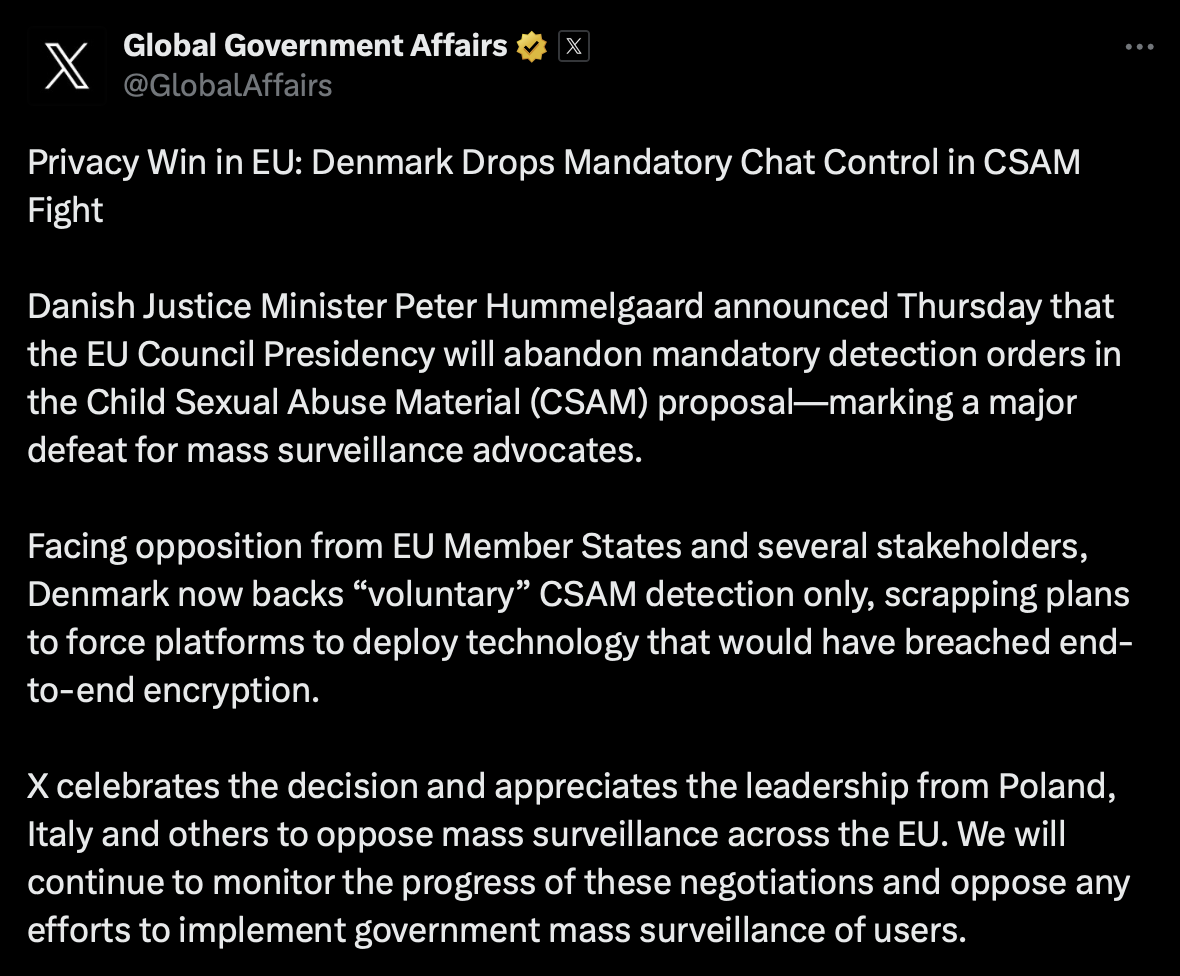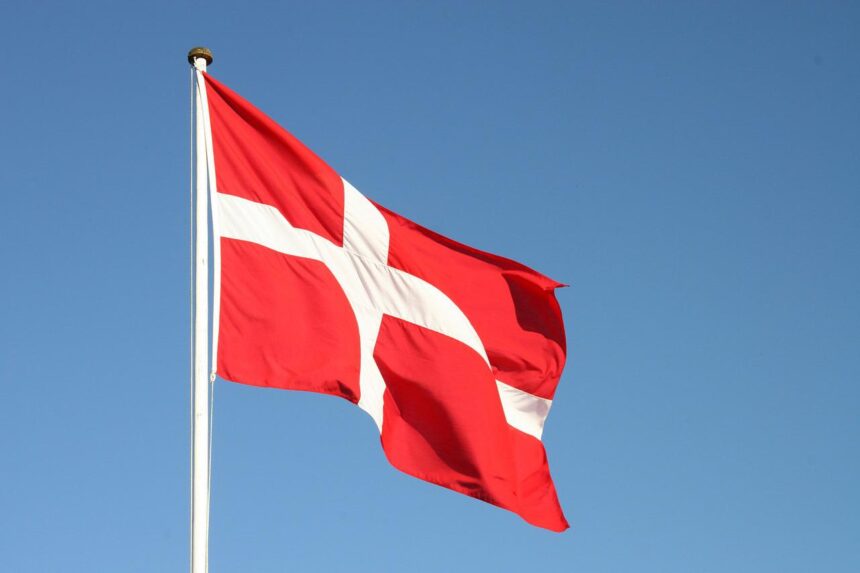Denmark Withdraws EU Chat Control Proposal, Preserves Messaging Privacy
Background on the EU Chat Control Proposal
Denmark, currently holding the presidency of the European Council, has officially withdrawn the EU Chat Control proposal. The measure would have required messaging platforms such as Telegram, WhatsApp, and Signal to allow authorities to scan messages before they are encrypted and sent. Initially introduced in May 2022, the legislation aimed to help combat the distribution of illegal content via messaging applications.
The revived proposal faced strong criticism from privacy advocates, who argued that mandated message screening would compromise end-to-end encryption and erode user privacy rights. According to a report by Danish newspaper Politiken on October 30, Danish Minister of Justice Peter Hummelgaard confirmed, “The proposal will now not be part of the EU presidency’s new compromise proposal, and that it will continue to be voluntary” for tech companies to screen messages.
Market Reaction and Privacy Concerns
With the Denmark withdraws EU Chat Control proposal announcement, platforms and privacy organizations have responded with strong approval. The current voluntary framework, which allows – but does not force – technology platforms to screen messages for illicit content, is set to expire in April 2026. Hummelgaard noted that continued political gridlock could leave the European Union without legal mechanisms to combat abuse via encrypted platforms.
The decision prompted X’s Global Government Affairs team to call it a “major defeat for mass surveillance advocates,” adding that the company would “continue to monitor the progress of these negotiations and oppose any efforts to implement government mass surveillance of users.” Patrick Hansen, EU Strategy and Policy Director at stablecoin issuer Circle, referred to the withdrawal as a “Major win for digital freedoms in the EU.”

The Electronic Frontier Foundation, a leading digital civil liberties organization, also welcomed the move. The group linked the withdrawal to public backlash, stating that widespread opposition may have “pushed the EU Council to withdraw its dangerous plan to scan encrypted messages.” Thorin Klosowski, an EFF privacy activist, urged lawmakers to focus on public safety initiatives that respect global human rights, emphasizing, “As long as lawmakers continue to misunderstand the way encryption technology works, there is no way forward with message-scanning proposals, not in the EU or anywhere else.”
What’s Next for Encrypted Messaging in the EU?
Under the current timeline, the voluntary compliance framework remains in place until April 2026. According to Politiken, the Danish government’s decision to withdraw the proposal was intended to allow time for a new framework to be negotiated before the current regime expires. If political deadlock continues, there could be a period where the EU has no binding regulations for monitoring content on encrypted messaging services.
With Denmark’s presidency of the European Council set to end in July 2026, Ireland will then assume leadership. It remains uncertain whether new legislative proposals for screening encrypted messages will emerge once Ireland takes over the presidency. Stakeholders in the technology and privacy sectors are expected to continue monitoring developments closely.
For ongoing updates on digital privacy legislation and encryption technology, visit the Cryptocurrency section on Vizi.com.
Sources
Reporting via Cointelegraph



















